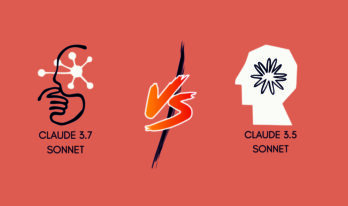There is a major paradigm shift in the methods of computing which reflects the remarkable growth of the human mind. One major change that we’ve witnessed is the evolution of hard computing to soft computing.
The techniques used by soft computing have basically originated from various mathematical concepts, like fuzzy logic.
Soft computing provides insights into real-world problems and is just not limited to theory. It has tolerance for uncertainty and is imprecise in nature due to which it has spread widely into various industries.
This blog is a look over on the development of soft computing in various domains. Its applications range from engineering designs in industrial to biological processes.
What is Soft Computing?
Soft computing is the process of solving real-life complex problems using approximate calculations and gives solutions that are not very specific in nature just like the human brain works, which, unlike traditional computing, focuses on impartial truths and approximates.
The constituents of soft computing are:
- Fuzzy Logic (FL)
- Evolutionary Computation (EC)
- Machine Learning (ML) and
- Probabilistic Reasoning (PR)
There are various problems in the world that require vast resources and computations to be made which cannot be solved just by logical means. Soft computing has emerged as a way of solving problems the way humans do. Let's take a look at some of the applications of soft computing across different industries:
Handwritten Script Recognition is one of the demanding parts of computer science. It can translate multilingual documents and sort the various scripts accordingly.
It uses the concept of “block-level technique,” where the system recognizes the particular script from a number of script documents given.
It uses a Discrete Cosine Transform (DCT), and discrete wavelets Transform (DWT) together, which classify the scripts according to their features.
Image analysis is one of the most important parts of the medical field. It is a high-level processing technique that includes recognition and bifurcation of patterns.
Using soft computing solves the problem of computational complexity and efficiency in the classification. Techniques of soft computing include Genetic Algorithms, Genetic Programming, Classifier Systems, Evolution Strategies, artificial life, and a few others, which are used here.
These algorithms give the fastest solutions to pattern recognition. These help in analyzing the medical images obtained from microscopes as well as examine the X-rays.
The use of soft computing has solved a major misconception that the automobile industry is slow to adapt. Fuzzy logic is a technique used in vehicles to build classic control methods.
It takes the example of human behavior, which is described in the forms of rule – “If-Then “statements.
The logic controller then converts the sensor inputs into fuzzy variables that are then defined according to these rules. Fuzzy logic techniques are used in engine control, automatic transmissions, antiskid steering, etc.
An intelligent building takes inputs from the sensors and controls effectors by using them.
The construction industry uses the technique of DAI (Distributed Artificial Intelligence) and fuzzy genetic agents to provide the building with capabilities that match human intelligence.
The fuzzy logic is used to create behavior-based architecture in intelligent buildings to deal with the unpredictable nature of the environment, and these agents embed sensory information in the buildings.
Soft computing gives an advantage of reducing the cost of the decision support system.
The techniques are used to design, maintain, and maximize the value of the decision process.
The first application of fuzzy logic is to create a decision system that can predict any sort of risk.
The second application is using fuzzy information that selects the areas that need replacement.
Soft computing uses the method of Artificial Neural Network (ANN) to predict any instability in the voltage of the power system.
Using the ANN, the pending voltage instability can be predicted. The methods that are deployed here are very low in cost.
The techniques of soft computing help in modifying any uncertainty and indifference that biometric data may have.
It provides distinct low-cost solutions with the help of algorithms, databases, Fuzzy Sets (FSs), and Artificial Neural Networks (ANNs).
These techniques are best suited to give quality results efficiently.
The data present in the finance field is in opulence, and traditional computing is not able to handle and process that kind of data.
There are various approaches done through soft computing techniques that help to handle noisy data.
Pattern recognition technique is used to analyze the pattern or behavior of the data and time series is used to predict future trading points.
Recent developments
Soft computing techniques like fuzzy sets theory, neural nets, fuzzy neuro system, and adaptive neuro-fuzzy inference system (ANFIS) are now being used for driving various numerical simulation analyses. It has helped in modeling the processes of machines with the help of artificial intelligence.
Also, there are certain areas where it is in a budding stage only and is expected to see a massive evolution:
- Big Data
- Recommender system
- Behavior and decision science
- Mechanical Engineering
- Computer Engineering
- Civil Engineering
You may also like to read:
Soft Computing vs. Hard Computing: Difference Explained
5 Applications of Autonomic Computing</a></a>




